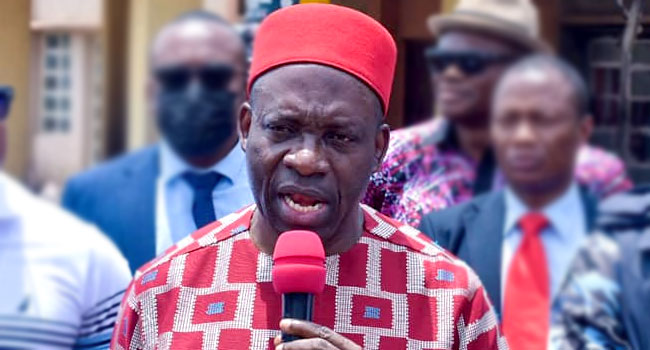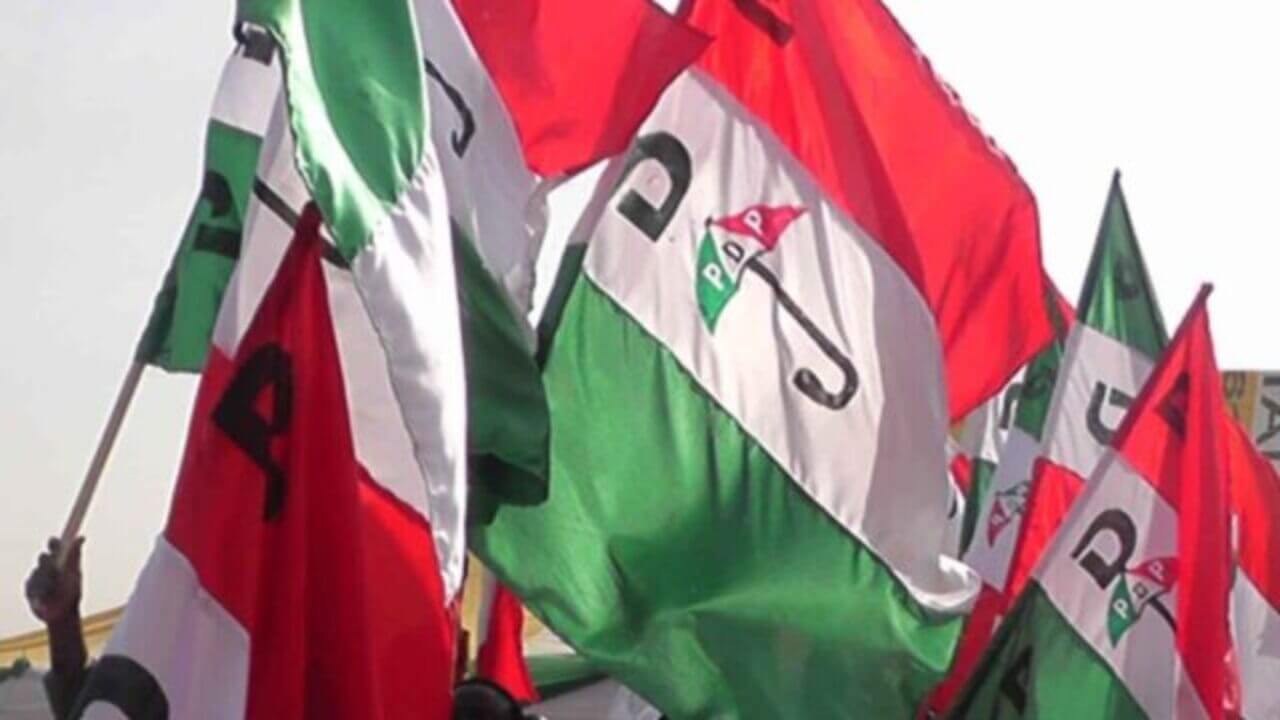• N62,000 can’t do anything, says Orji Kalu, insists on N90,000
• NLC kicks against decentralisation of minimum wage negotiations
Ahead of the resumption from the Sallah break next month, the two chambers of the National Assembly are under immense pressure on how to deploy legislative powers to resolve the national minimum wage tussle and ensure compliance by all stakeholders.
The pressure became more pronounced following reports that the apex legislative body was contemplating sanctions against states that fail to comply with the minimum wage law that would be enacted soon.
The Federal Government, including the executive and legislative arms, is on the same page in ensuring that states and the private sector raise the wage above the N62,000 that had been rejected by labour.
It was learnt that a major headache was how to ensure that states and the private sector comply with the figures that would be contained in the minimum wage law. The pressure became more intense with the opposition mounted by state governors who insisted they wouldn’t pay N60,000 as minimum wage.
It also emerged that even within the National Assembly, some lawmakers who are loyal to their governors are mounting pressure on the legislative body to enact a law that is acceptable to the states.
An executive bill is expected to be submitted to the National Assembly by President Tinubu on the new minimum wage before the end of this month, ahead of the resumption of lawmakers in the first week of July 2024.
There is no indication that the Assembly will tinker with the document before passage.
It also emerged that state governors, through their loyalists, renewed their bid to get the National Assembly to amend relevant sections of the Constitution to allow the implementation of a decentralised minimum wage.
It was learnt that to achieve this, the bill seeking amendment of the Constitution to legalise decentralisation is being reworked and will be resubmitted for legislative action in both chambers.
In 2021, a bill that sought to decentralise minimum wage negotiations by removing it from the exclusive legislative list to the concurrent list, passed second reading at the House of Representatives, but couldn’t secure final passage by the 9th National Assembly before the expiration of its tenure in June 2023 .
The bill, Differential Wage Bill, allows both federal and state governments to freely negotiate minimum wage “with their workers, in line with true federalism”.
Following the declaration by governors that states lacked financial powers to pay N60,000 as minimum wage, pressure on the National Assembly had increased for and against the use of its legislative powers to compel compliance and sanction non-compliance.
The National Assembly has constitutional powers vested in it by Item 34 of the exclusive legislative list which relates to “labour, including trade unions, industrial relations; conditions, safety and welfare of labour; industrial disputes; prescribing a national minimum wage for the federation or any part thereof; and industrial arbitration.”
The new minimum wage bill, which sources hinted would be given accelerated consideration and passage, is the only major legislation that would be enacted before the apex legislative body proceeds on its end-of-session recess later in July.
Confirming the pressure, spokesman for the Senate and Chairman of its Committee on Media and Public Affairs, Yemi Adaramodu, hinted that sanctions are imperative against states that fail to comply. He said the National Assembly would make copious provisions for sanctions against non-compliance with the new minimum bill.
Expressing regret that many stakeholders failed to fully comply with the N30,000 minimum wage, the Senate, which spoke through Adaramodu, vowed to enact a minimum wage law that is difficult to breach.
“We are going to do a watertight bill. We are proposing that the President will sign it, to ensure that it is strictly adhered to as law. Once it becomes law, we are going to make it watertight.”
Adaramodu, in an interview, further noted: “When it (the minimum wage bill) comes, whatever is there and whatever is not there, we are going to ensure that it’s going to be watertight; that it’s going to be obeyed by all. But, as I said, the National Assembly is going to take this law seriously.
“For the state or sub-national or organised private sector player that is not complying, there is going to be sanction. That’s the way it’s got to be done this time around. But the labour centres also need to protect the welfare of their members, not only with the Federal Government.”
On whether the Federal Government can sanction any of the states for non-compliance, the Senate spokesman said: “If there is a national law…We are running a Federal Government. There is a National Assembly. The National Assembly is to make laws, not for President Tinubu, but for Nigeria.”
Asked to explain the nature of the sanctions, Adaramodu said lawmakers and members of the public would take time to ventilate ideas about it when the Senate resumes plenary.
He explained: “When the executive bill comes and we sit down in the chamber, there are going to be opinions. We are going to invite not only legislators to talk about it; the organised labour too will contribute to making the law. When that time comes we will all decide what’s going to be the sanction.
The Nigeria Governors’ Forum (NGF), meanwhile, cautioned all stakeholders to consider the issue of sustainability before adopting a final figure.
“All things considered, the NGF holds that the N60,000 minimum wage proposal is not sustainable and cannot fly. It will simply mean that many states will spend all their federal allocations on just paying salaries, with nothing left for development purposes,” the Forum declared in a statement by its acting director on media and public affairs, Hajiya Halimah Salihu Ahmed.
It appealed that “all parties involved, especially the labour unions, consider all the socio-economic variables and settle for an agreement that is sustainable, durable, and fair to all other segments of the society who have a legitimate claim to public resources.”
Nevertheless, the NGF said it agreed that a new minimum wage was due and equally sympathised with labour unions in their push for higher wages.
Speaking for his colleagues at a hearing, Osun State Governor, Ademola Adeleke, had argued that the majority of Nigerians live in the states, hence, the revenue-sharing formula should be reviewed in tandem with the public outcry for the allocation of more resources to states.
BUT the Nigeria Labour Congress (NLC) kicked against the call to decentralise minimum wage negotiations.
Secretary of NLC in Oyo State, Mr Adebayo Aribatise, in an interview with News Agency of Nigeria (NAN) in Ibadan, yesterday, said decentralising minimum wage negotiations would put workers in some states at a disadvantage.
NAN reports that some politicians had, recently, called for decentralised minimum wage negotiations.
One of them, Dr Kayode Fayemi, a former Governor of Ekiti, stressed the need to allow states to conduct wage negotiations with their labour unions, separate from that of the Federal Government.
Explaining the broader implications of a centralised minimum wage, the former governor noted that only a small percentage of the population benefits directly from minimum wage negotiations.
However, Aribatise rejected Fayemi’s suggestion, saying decentralising minimum wage negotiations was not ideal for the country.
He noted that some states had not yet fully implemented the old N30,000 minimum wage, despite efforts put in place by NLC at the national and state levels.
Besides, the labour leader said some governors would abuse the privilege if they were allowed to negotiate a minimum wage with their states’ workforce.
“The fact remains that the law binds states to pay national minimum wage. It is expected that the Federal Government will continue to set the minimum wage. If not, some governors will continue to do as they like. Some governors will bastardise the agreement if we allow it, and junior workers will continue to earn nothing worthwhile,” he said.
ALSO, North Senator, Orji Uzor Kalu, advocated that the Federal Government pay N90,000 as new minimum wage for Nigerian workers.
Speaking on Channels Television, he said: “I’m sure the President has done well in some areas, and he also needs to improve in many other areas. I’m a very practical person; I fear nobody and I support the truth.
“I’m a proponent that local governments should be getting their money fully. I also believe that N62,000 cannot do anything. Why I’m proposing N90,000 is very simple. We have not increased the minimum wage in five years. The civil servants need good treatment.”

 5 months ago
309
5 months ago
309















 English (US) ·
English (US) ·